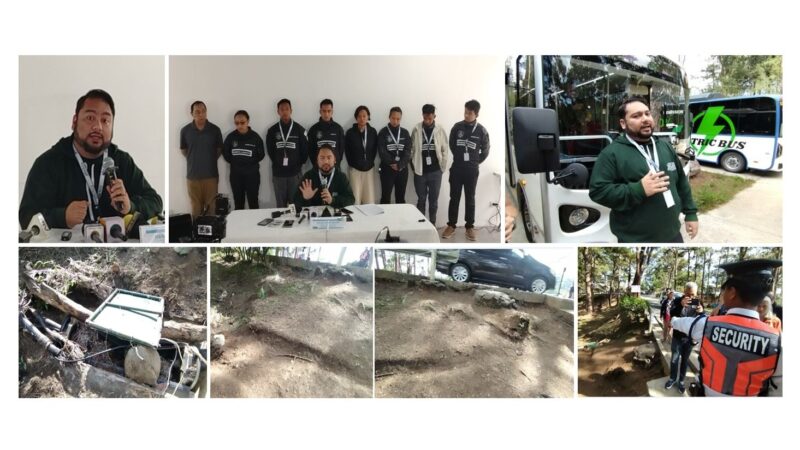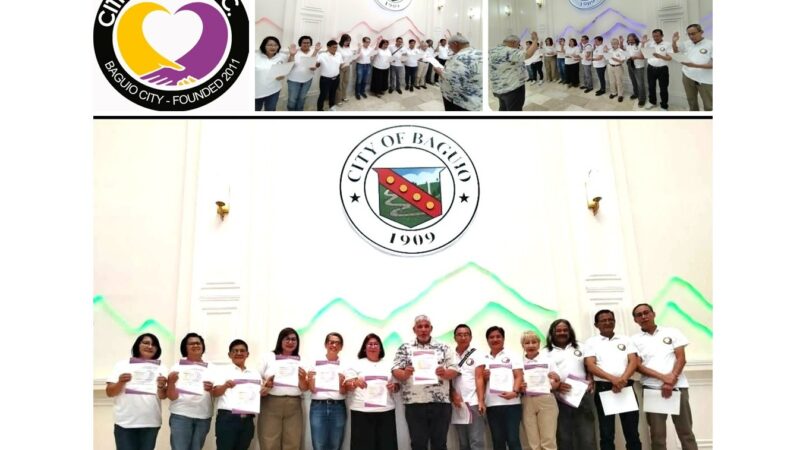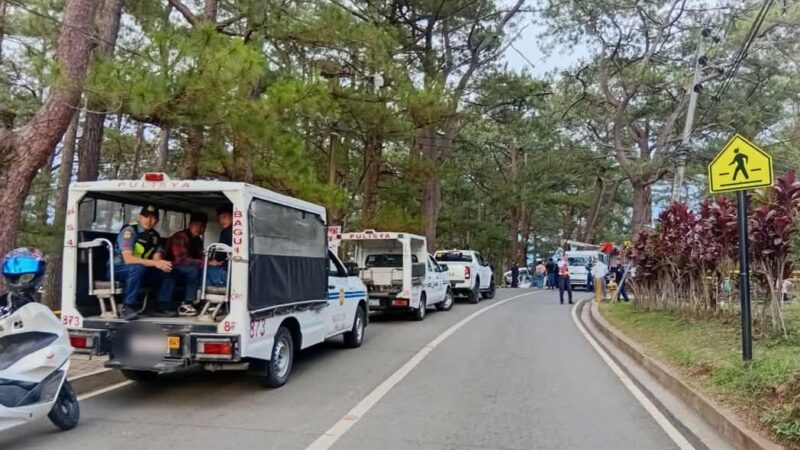Mayor reveals hard facts in city’s climate change summit

Enthusiastic environmentalists from the local government, barangays, academe, youth groups, civic-social organizations, came together during the first Baguio climate summit which was done in two presentations; Feb. 9 and 22 at the Baguio Cultural and Convention Center.
The morning and afternoon session reports, with very knowledgeable speakers on different aspects focused on the theme, “Sama-samang Tumutugon sa Hamon ng Nagbabagong Klima.”
Mayor Benjamin Magalong in his keynote message pointed out hard facts on Baguio’s environment, with dire consequences foreseen in 2043 once global warming and climate change is not mitigated. The city would then fall into urban decay, which started decades ago, he added. Urban decay is when a previously functioning city or an area of a city falls into a state of utter disrepair, and recovery would be seemingly impossible.
We need to fight climate change head-on, the mayor said emphatically; we present the truth about global warming and its effect on the environment, just the truth, no hiding of details and no sweet coated words.
In his report, the mayor mentioned that in 2018, a greenhouse gas (GHG) emission inventory shows that the city is 53% above the country’s national average. Lately, a more accurate study was done as a foundation for the crafting of a climate action plan, the mayor said.
A 2019 National Economic and Development Authority (NEDA) study shows a glaring increase in carbon emissions from the city’s transportation, households and waste, the mayor said.
The study shows that the city’s road carrying capacity was breached in 1988; the solid waste collection limit of 52,000 Metric Tons (MT) was in 1994 and at present is 95,000 MT; with the city previously paying P133M, now P180M to have garbage hauled to Clark City.
The standard allocation per person was then 40 sq. m/person, now fallen to 20 sq m/person.
Water supply of 18.5 cu. m per individual, is now down to 14 cu m. Thus the 2 to 3 times a week distribution, the mayor lamented; while the still operating 36-year old Sewage Treatment Plant in Sanitary Camp with a capacity of 8,500 cu. m, is now at 6,000 cu. m, with leaks that pollute the Balili river.
River sensors connected to the smart city complex have also detected a toxicity surge, when undisciplined residents release septic and other household waste to waterways, the mayor intimated. Such irresponsible acts are often attributed to households within the river easements but are being rectified by the concerned city offices.
Balili river and Bued rivers, both in Baguio are now more polluted than Pasig river, Mayor Magalong also said; with open spaces and land for development significantly diminished since 2008 and 2010, respectively.
In October last year, Session road was flooded with a 55 mm rainwater in just 35 minutes, the experience forecasted in an earlier Asian Development Bank (ADB) modeling. Twenty years on a do-nothing scenario predicted such increased precipitation in Baguio City, the mayor said.
Of the city’s 102,000 structures, only 20% have building permits; forest covers are also down thirty percent (30%), with Busol from 82 hectares to 45 ha, and Buyog from 19 hectares to only 7 hectares.
The mayor thus solicits help from everybody; with collaboration, cooperation, coordination and communication as ways to regain mileage in ecological and environmental concerns.
Greenwalks, pedestrianization, waiting sheds, biking lanes and ways to reduce carbon emission are on the mayor’s agenda, including a P246M project for the improvement of Wright, Mines View and Post Office Parks, the Irisan Eco-Park, the Botanical and Arboretum gardens.
A P10M high-end greenhouses in Busol and the Botanical garden are also on schedule.
A P400M funding is being sourced out, with the Department of Tourism (DOT) willing to add P300 to improve Burnham and the Ibaloy park.
Urban agriculture, edible landscapes and gardens shall also be made sustainable as we find solutions in reducing our carbon footprint and make liveable communities towards a liveable city for a better quality of life for the next generation, Mayor Magalong further said.
He thus urged every resident to work towards climate change mitigation; and the youth to take on responsible leadership as a legacy for a green and livable community and city. – JGF






